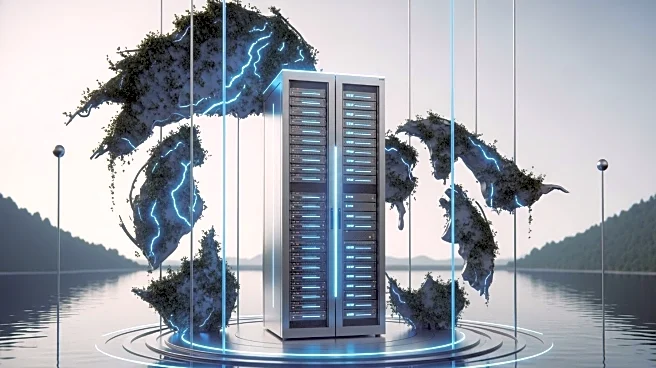What's Happening?
The increasing number of data centers in the Great Lakes region is raising concerns about potential water shortages. These centers, which require significant water resources to operate, are proliferating due to the growing demand for artificial intelligence technologies. Despite the abundance of water in the Great Lakes, not all surrounding communities have the infrastructure to support this industry sustainably. A recent report highlights the lack of preparedness for the rising demand from data centers and other water-intensive industries, such as agriculture. The report, authored by Helena Volzer from the Alliance for the Great Lakes, criticizes the tax incentives offered by Great Lakes states to attract data centers, which do not consider local water availability. Additionally, data centers are not mandated to disclose their water usage, further complicating resource management.
Why It's Important?
The expansion of data centers in the Great Lakes region poses significant environmental and resource management challenges. As these centers consume large volumes of water, they could exacerbate existing water scarcity issues, affecting local communities and ecosystems. The situation underscores the need for better regulatory frameworks to ensure sustainable water use and prevent conflicts over resources. The economic incentives currently in place may inadvertently encourage unsustainable practices, highlighting a gap between economic development goals and environmental stewardship. This development could impact local industries, agriculture, and residents who rely on the Great Lakes for water, potentially leading to increased competition and regulatory scrutiny.
What's Next?
Stakeholders, including policymakers, environmental groups, and industry leaders, may need to collaborate to address the water usage concerns associated with data centers. This could involve revising tax incentives to align with sustainable water management practices and implementing mandatory water usage reporting for data centers. Additionally, there may be increased advocacy for policies that balance economic growth with environmental protection, ensuring that the Great Lakes region can support both technological advancements and ecological health.










